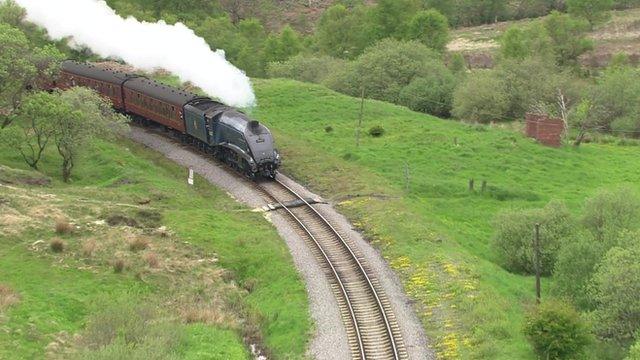Mallard steam locomotive driver to get Doncaster memorial
- Published
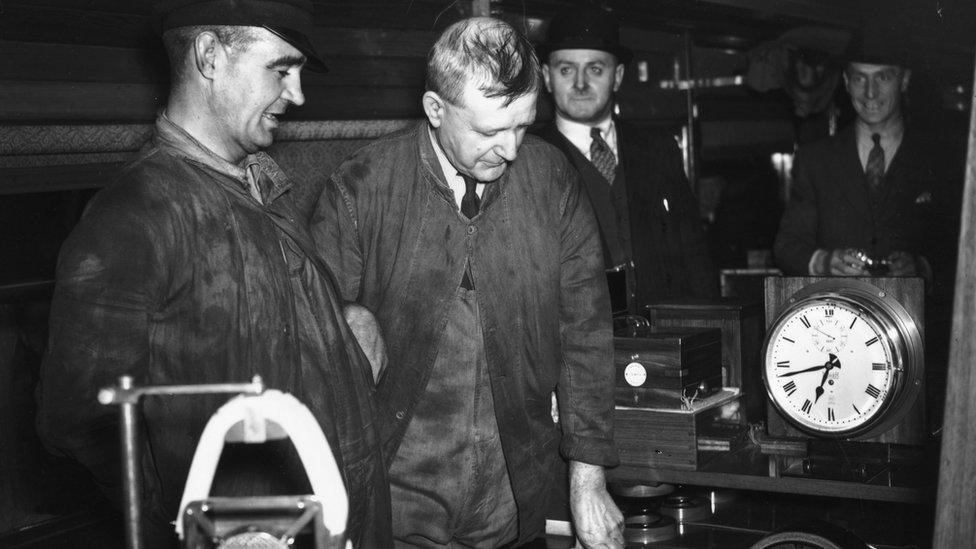
Fireman Thomas Bray (left) and Joseph Duddington (centre) inspect the equipment which documented their record-breaking speed
Thousands of pounds has been raised to mark the grave of the driver who set the world steam record with Mallard.
The Doncaster-built locomotive hit 126 mph (203 km/h) in 1938, with Joseph Duddington at the controls.
A campaign is under way to erect a headstone memorial to Mr Duddington, who is buried in an unmarked grave in a Doncaster cemetery.
His great grandson Matthew Delaney said honouring the "astronaut of his day" was the right thing to do.
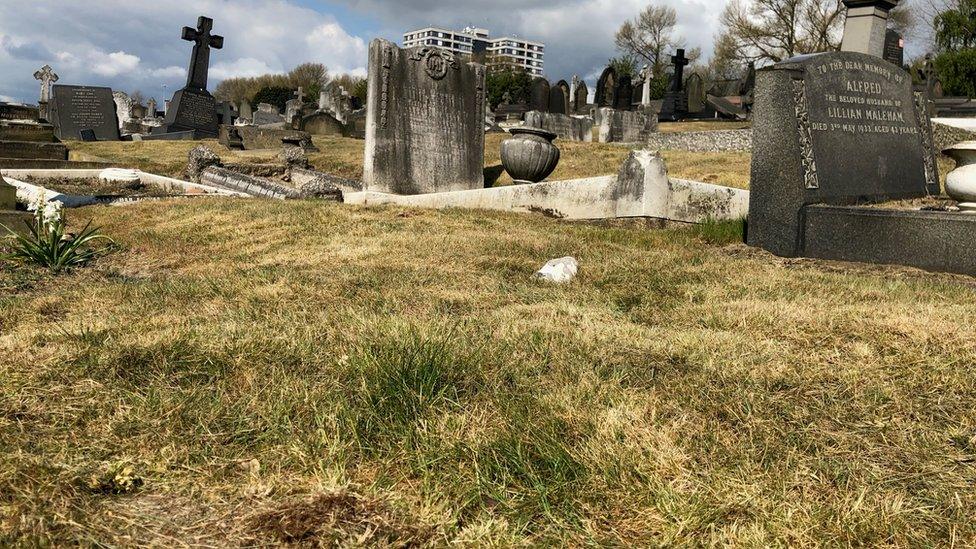
Joseph Duddington is buried in an unmarked grave in Hyde Park Cemetery, Doncaster
"He probably wouldn't have wanted the notoriety, but I think he deserved it," Mr Delany said.
"I felt there was something that needed to be done for him, being potentially a celebrity of his day for what he achieved."
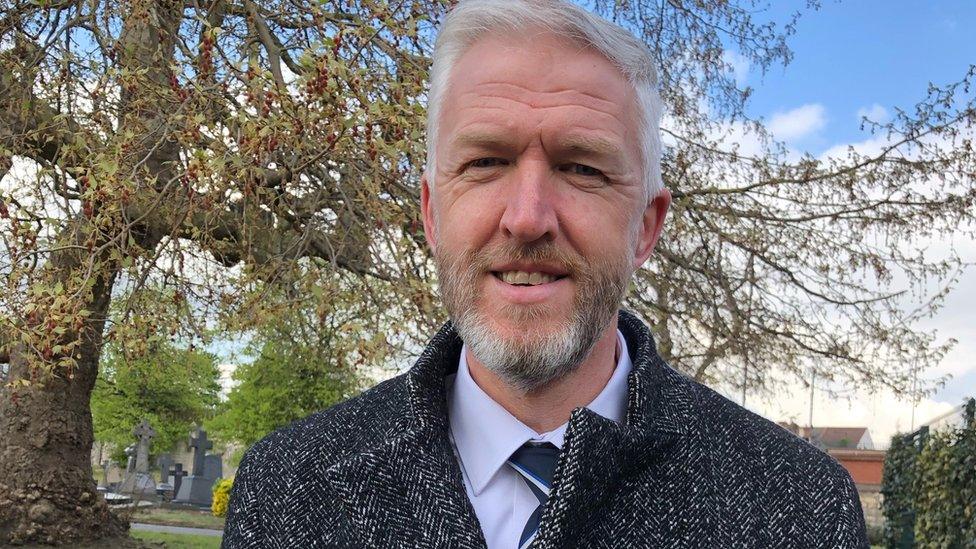
Matthew Delaney said his great grandfather was the "astronaut of his day"
Mallard's speed, at the hands of Mr Duddington and fireman Thomas Bray, remains unmatched.
Feeling more needed to be done to celebrate the achievement of his record-breaking great grandfather, Mr Delany emailed the mayor of Doncaster to ask for a memorial at the cemetery where he was buried.

Facts about Mallard
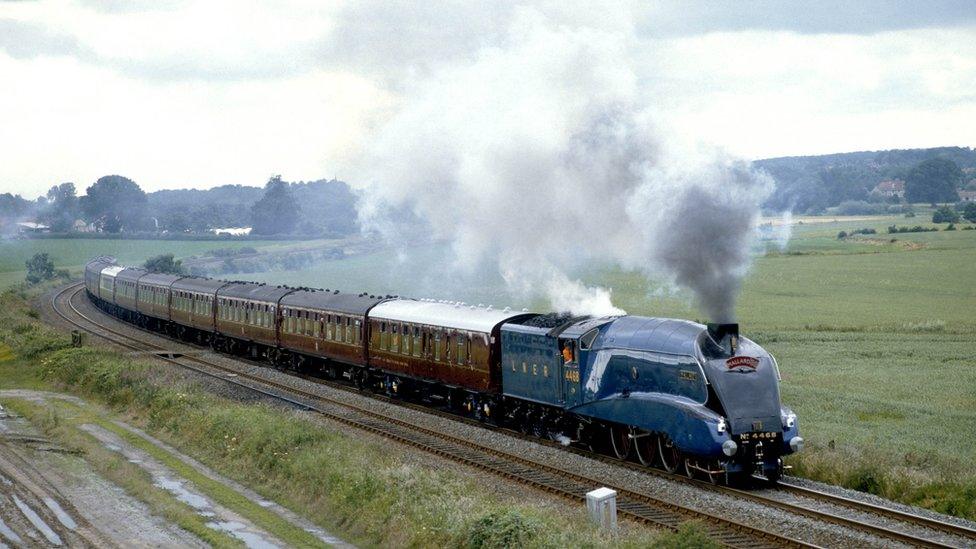
Mallard set the 126 mph steam locomotive world record in 1938
Sir Nigel Gresley designed Mallard 4468 and it was built in March 1938
Mallard was built at LNER's Doncaster works
The A4 class locomotive broke the record when it travelled at 126 mph (203 km/h) on 3 July 1938 at Stoke Bank, south of Grantham
The locomotive's introduction cut journey times from London King's Cross to Newcastle to four hours
Mallard is now on display at the National Railway Museum in York
Source: National Railway Museum

It was not known exactly where Mr Duddington was buried, but after a detailed search by the Friends of Hyde Park Cemetery his grave was found.
Lynsey Slater, from the group, said they used maps and records dating back decades to pinpoint Mr Duddington's grave.
She said: "We actually went through the burial registers to look for his name and we found he was buried with his wife Mary Alice, who had pre-deceased him."
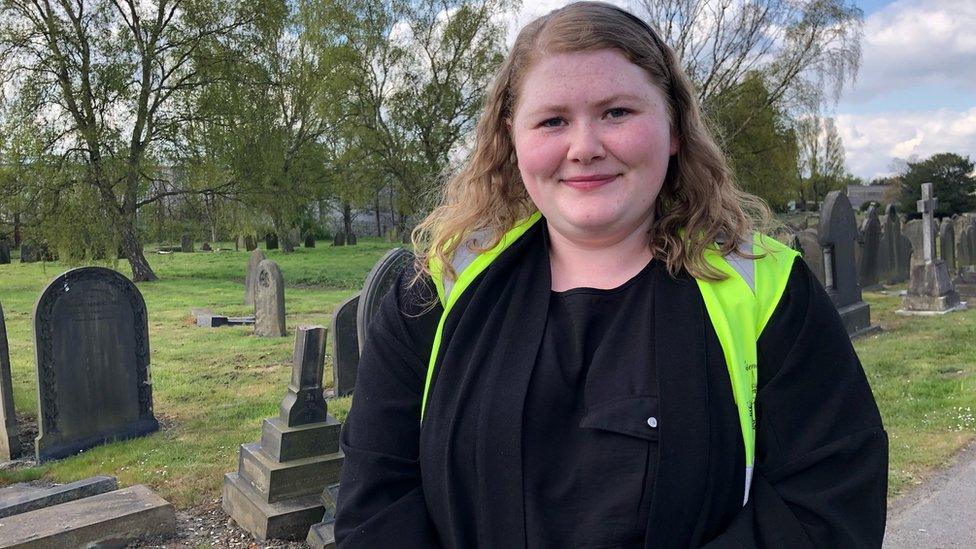
Lynsey Slater said finding people's relatives in unmarked graves was "really exciting"
A donation drive for a memorial was launched to pay for a headstone for the unmarked grave and so far over £5,000 has been raised.
Mr Duddington's family said they hoped the memorial would be unveiled in the summer.

Follow BBC Yorkshire on Facebook, external, Twitter, external and Instagram, external. Send your story ideas to yorkslincs.news@bbc.co.uk, external.
Related topics
- Published30 July 2019
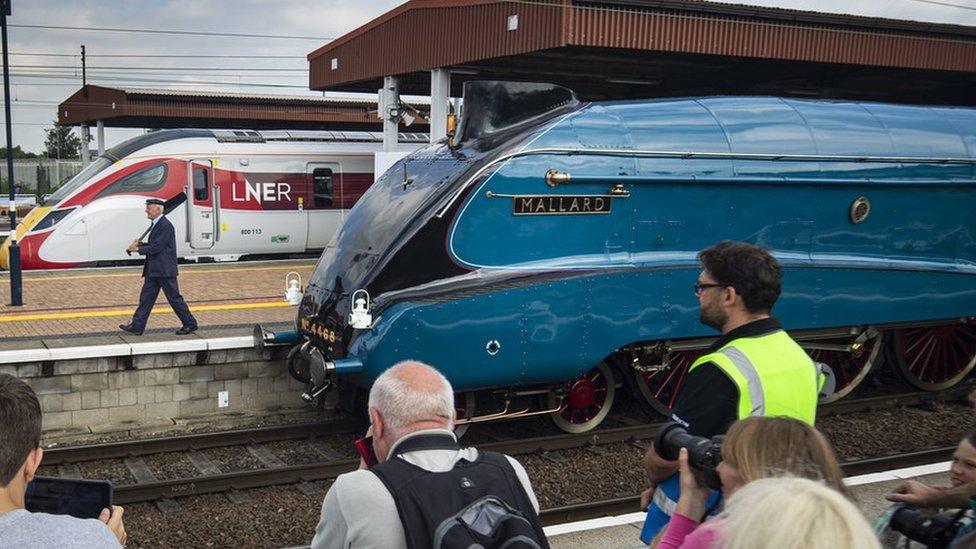
- Published3 July 2013
